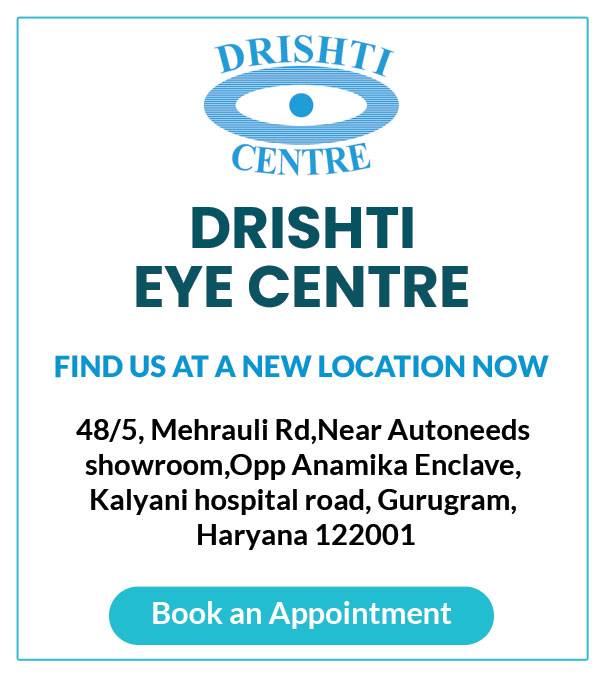Eye Drops
- The fingers should never touch the tip of eye dropper to avoid contamination.
- To put the drop gently pull your lower eyelid down and avoid touching the eye, eyelashes, or anything else with the dropper tip.
- The Eyes should be kept closed for around 30 seconds.
- If prescribed more than one drop, wait for at least 5 minutes before putting a second drop.
- Do not put eyedrops over contact lenses unless specifically advised.
Computer Use
- The computer screen should be is at least 18 to 26 inches away from eyes.
- Arrange the monitor so that the top line of on-screen text is at eye level.
- Take frequent vision breaks to give rest to the eyes, closing eyes for few seconds every 10-15 minutes.
- Remember to blink often to keep the eyes moist.


Regular Eye Examinations
- All children between 3 -5 years of age should be screened for refractive errors ie spectacle power and amblyopia-lazy eye.
- All myopes (people wearing minus spectacle power) should get their retina screened by indirect ophthalmoscopy under pupillary dilatation every 2 years to detect any peripheral break /degeneration.
- All diabetics must undergo detailed eye checkup yearly to detect diabetic retinopathy early.
- ALL individuals above 40 should undergo intraocular pressure measurement to detect Glaucoma specially if they have afamily history of Glaucoma.
- All individuals above 50 years of age with decrease in vision should also be examined for Cataract & ARMD-age related macular degeneration
Detecting Eye Problems In Children
- Look for constant eye rubbing , extreme light sensitivity.
- Abnormal alignment or movement of the eyes (after 6 months of age).
- A white pupil instead of black.
- Inability to see objects at a distance / read blackboard
- Sitting too close to the TV.
- Squinting or crossed eyes.
- Watering of eyes / frequent headaches
Eye Donation
- Eye donation means that you can pledge for your eyes to be donated after death. The front mirror portion of eye called cornea is removed and transplanted on a living person’s eye.
- One person can give sight to two corneal blind persons by donating eyes.
- Eyes can be pledged during one’s lifetime but can be donated only after death.
- Persons of any Age/Sex can donate their eyes.
- Eyes should be donated preferably within SIX hours after the death. Local Eye Bank number-In Delhi:1919.
- At the sight of death switchh off fans/keep air conditioner or cooler running and Place wet cotton with ice over the closed eyelids/ Raise head with a pillow.
Facts & Myths
Myth : Safety goggles are more trouble than they are worth.
Fact : Safety goggles prevent many potentially blinding injuries every year. Keep your goggles handy and use them
Myth : Using a computer screen is harmful to the eyes.
Fact : Although using a computer screen is associated with eyestrain or fatigue, it is not harmful to the eyes.
Myth : Using Computers / Poor diet leads to weak eyesight.
Fact : Weak Eyesightsight/ refractive error is a result of the size and curvature of eyes which has nothing to do with the diet or the usage of eye.
Myth : Children will outgrow “crossed” eyes.
Fact : Children do not outgrow truly crossed eyes. The sooner crossed or misaligned eyes and it’s cause are treated, the less likely the child will have permanently impaired vision.
Myth : If one starts using glasses, the number will stop increasing.
Fact : The increase in the number is related mainly to one’s age. The number normally increases upto 18yrs in women and 21yrs in men irrespective of usage of glasses.
Myth : A cataract must be “ripe” before it can be removed.
Fact : With modern cataract surgery, a cataract should not mature before it is removed. It can cause more complications than an immature cataract.

